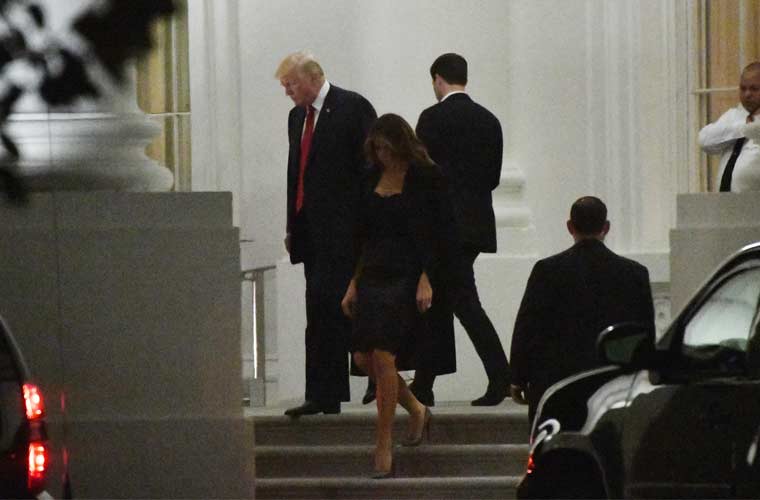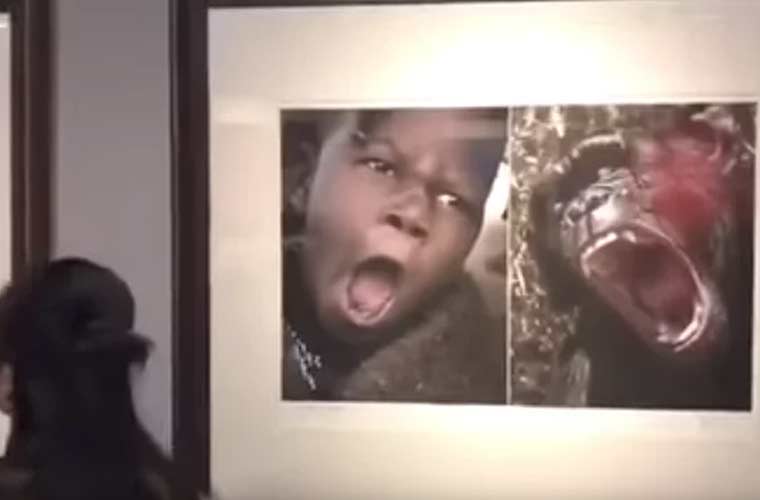Trending Now
- IPL 2024 begins with a bang. First contest between CSK and RCB.
- Election commission allots mike symbol to Naam Thamizhar Katchi
- AIADMK promises to urge for AIIMS in Coimbatore, in its election manifesto.
- Ponmudi becomes higher education minister.
Around The Web
Queen calls for Modern Slavery Act to be replicated in Commonwealth nations
![]() October 11, 2017
October 11, 2017
Commonwealth secretary general confirms monarch keen to see similar legislation promoted across the 52 countries to tackle trafficking and exploitation
The Queen personally intervened to ask lawmakers to replicate the Modern Slavery Act throughout the countries of the Commonwealth, the Guardian can reveal.
Patricia Scotland, the Commonwealth secretary general, confirmed that the Queen expressly stated she would like to see legislation similar to the 2015 act promoted in the 52 Commonwealth nations.
Although her intervention is non-binding, it raises the profile of modern slavery, encourages Commonwealth nations’ existing efforts to tackle it, and provides a mechanism by which leaders can be held accountable for pledges they make. The next Commonwealth heads of government meeting, which takes place in the UK in April 2018, is devoted to enhancing efforts to “eradicate forced labour, modern slavery, human trafficking and the worst forms of child labour”.
Trafficking, forced labour and forced or early marriage affect many Commonwealth countries. Sex trafficking networks are especially developed in Nigeria, and child trafficking and child labour are prevalent in other African nations, such as Ghana.
Bonded labour persists in Pakistan, as does caste-based slavery in India.
The Modern Slavery Act consolidated existing laws and established the role of anti-slavery commissioner to help police forces improve their detection and prosecution of offences. According to the charity Anti-Slavery International, Britain may have tens of thousands of people in slavery, in forced labour or trafficked for sexual exploitation, domestic work or criminal activities.
Lady Scotland was speaking last Thursday, after giving a lecture in London to the Catholic Union. She highlighted efforts by the Commonwealth secretariat to end early or forced marriage in Malawi.
“We’ve done a considerable amount of work with traditional leaders, who have been leading on … putting an end to early and forced marriage,” she said.
According to the secretariat, 43% of women in the Commonwealth were married before their 18th birthday. The charity Anti-Slavery International said early marriage counted as slavery if a child had been coerced into a marriage, could not leave it, and was subject to control and a sense of “ownership” that included forced labour or non-consensual sexual relations.
Scotland added that the newly founded Office of Civil and Criminal Justice Reform was supporting states to devise templates for improve legislation. She said there was a “real movement” to respond to modern slavery. “We are working with our countries … to create model laws, model implementation strategies in a number of different fields.” In the area of early and forced marriage, she added, “we have made some significant progress”.
Separately, the Commonwealth Parliamentary Association UK has run workshops for participants from Africa, Asia and the Pacific region on developing or tightening up anti-slavery legislation as part of a two-year modern slavery project, which was established last year with funding from the then home secretary, Theresa May.
Parosha Chandran, a human rights barrister who addressed workshops, said delegates were “interested, frustrated, concerned, innovative and passionate” in their engagement with the issues.
Ian McColl, whose private member’s bill formed the basis for the eventual act, told the Guardian that combating slavery was part of the Commonwealth’s efforts to strengthen democracy, because “slavery undermines democracy – slaves have no voice”. Non-Commonwealth countries such as Bulgaria and Romania “are taking up the baton” and have begun taking steps to enact similar legislation, he added.
Rev Hassan John, a Nigerian Anglican priest working in the central city of Jos, said that any move by federal lawmakers to end early marriage in Nigeria’s conservative Muslim-majority states would be met with resistance. “Parents marry their girls as early as eight … The arguments are that the girls, if not married quickly, will possibly adopt a promiscuous lifestyle.”
Lady Cox, who has campaigned on women’s rights and religious freedom, added that the sexual slavery and forced marriages demanded by the militant group Boko Haram in Nigeria would be more difficult to challenge because they had an “Islamist justification”.
Lord McColl expressed the hope that the Modern Slavery Project would continue beyond the two years specified. “This is going to be a continuing battle,” he said.
























